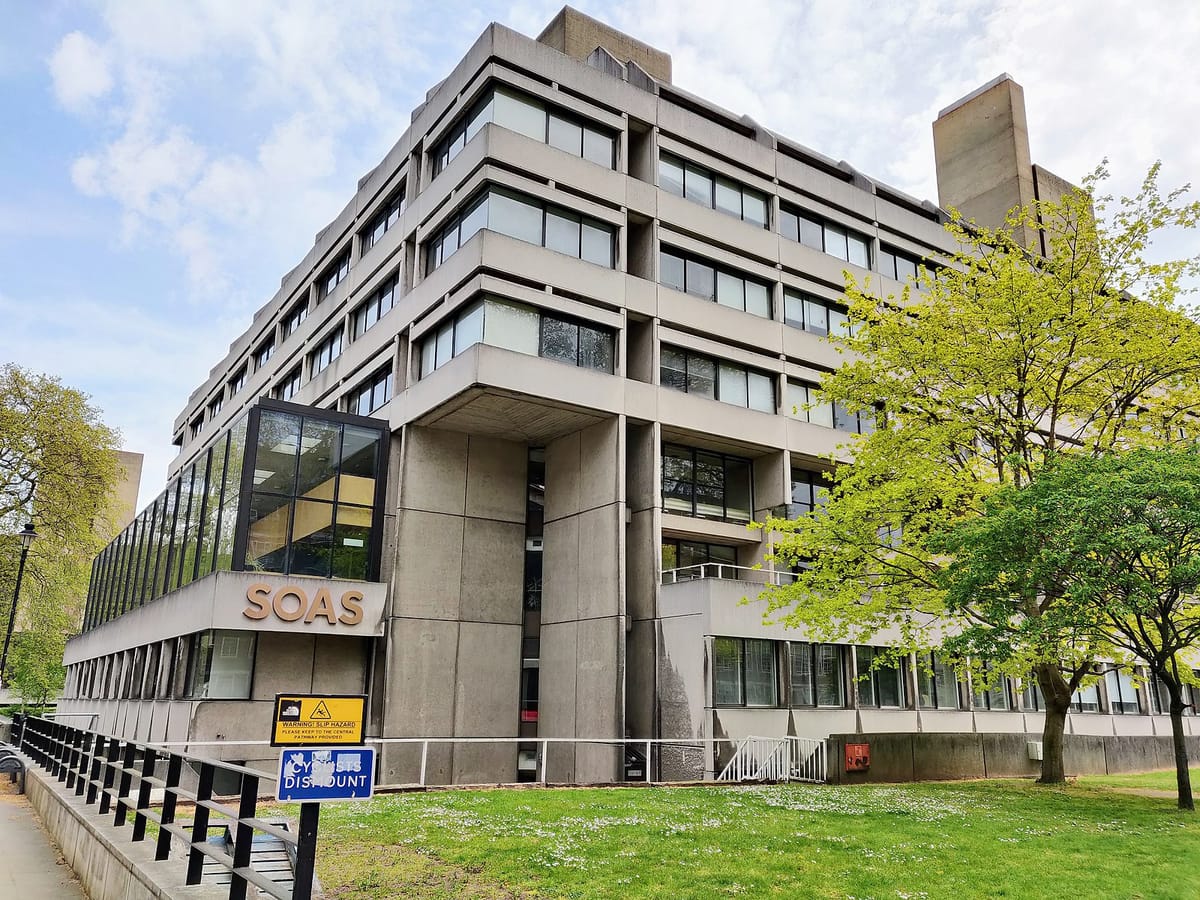SOAS makes a start on SGBV, but there’s more work to be done

By Louisa Johnson, MA Global Creative and Cultural Industries
Content warning: sexual and gender-based violence
In November 2020, SOAS released a new ‘Sexual and Gender-Based Violence’ (SGBV) policy, accompanied by two staff and survivor handbooks. This policy works alongside the ‘Preventing and Responding to SGBV’ guidance and other pre-existing institutional policies.
Dr. Monika Nangia wrote the policy with guidance from Empowered Campus — an external organisation which advises universities on sexual violence. Dr Nangia had just begun her role as Director of Student and Academic Services in 2018 when she heard about the petition by the student-led campaign, Account For This, regarding SOAS’ insufficient SGBV policy. Because of the restructuring, there was no specific department designated to this issue. As a result, Dr Nangia and Professor Andrea Cornwall decided to spearhead this mission. In December 2019, Dr Nangia convened a meeting with members from the institution, Account For This and the Students’ Union to discuss SGBV with Empowered Campus.
Rachel Vogler, a Gender Studies MA student working for Account For This, is cautious of Empowered Campus’ involvement and would prefer universities to commission local rape crisis centres to avoid creating ‘further distance between the student body and the faculty.’
“Corinna Del Debbio praises the new policy’s focus on ‘impact over intent’ which helps counter the ‘innocent until proven guilty’ narrative protecting perpetrators. However, she also says the policy’s ‘survivor-centred’ and ‘trauma-informed’ values are not consistently upheld.”
Corinna Del Debbio, a Politics and International Relations student, was previously interviewed by the Spirit regarding her open letter calling for an improved SGBV policy. Del Debbio praises the new policy’s focus on ‘impact over intent’ which helps counter the ‘innocent until proven guilty’ narrative protecting perpetrators. However, she also says the policy’s ‘survivor-centred’ and ‘trauma-informed’ values are not consistently upheld.
She highlights Section 6 of the ‘Staff Handbook’ which states that ‘the emotional wellbeing of the complainant/survivor’ is one of the ‘key considerations for what constitutes a serious case.’ As Vogler elaborates: ‘Measuring how much distress the victim is in plays into the myth of the perfect survivor, and this myth detracts our attention from perpetrators and holistic institutional accountability.’
Del Debbio and Vogler request more transparency in the reporting process. This includes addressing the exact timeline, the evidence required, meeting attendees, the names of the staff members facilitating this process at every level and their relevant training. For Vogler, this is the issue with using the university’s general complaints procedure to investigate SGBV cases: ‘SGBV needs to be given the respect and room for nuance that it deserves.’
To help with this, Dr Nangia launched ‘Report and Support’ in 2019. This service accepts anonymous reports and links all relevant policies and support systems. Her team is currently working on updating the portal to include named reports so more action can be taken on SGBV cases.
The policies also reference the peer-led, consent education campaign, Enough is Enough. According to Charli Keely, Enough is Enough Administrator and Social Anthropology student, campaign funding has come to an end, with no official confirmation yet on its renewal. Keely describes other setbacks: the Students’ Union launched a campaign Moodle page without consulting members; there was a delay hiring this year’s cohort; and the university’s administrative system was inadequate for workshop bookings. They state that many facilitators suffer ‘burnout’ due to the workload and ‘emotional labour’. Enough is Enough is currently putting through a UGM motion on how the campaign should run going forward.
Del Debbio, who has facilitated Enough is Enough workshops, says the policy’s reliance on the legal differentiation between ‘rape’ and ‘assault by penetration’ opposes the teachings of the campaign, which instead scrutinises hierarchal, gendered definitions. Del Debbio wishes more workshop content was reflected in the policy, given that its importance is emphasised throughout.
Dr Nangia says she is very receptive to feedback: ‘I expect more [critique] going forward, which is why I built into the policy an annual review. The Equality and Diversity Committee must regularly receive those updates and keep it fresh.’ Already Dr Nangia is working on releasing an amended version of the policy which is not solely focused on women, and more accurately reflects SOAS’ diverse community.
The Students’ Union issued this statement: ‘Enough is Enough is a valued campaign which the SU has supported and worked on for the past 5 years, and will continue to support into the future. Through the work of the SU, the campaigning of Enough is Enough and Account for This, SOAS now has in place an SGBV Policy and has undertaken an SGBV review, identifying and putting in place interventions across the School such as Report & Support, and continually recognising the essential nature of peer-led consent training. There have been significant challenges caused by Covid resulting in the SU as an organisation being severely overstretched in all areas, and we’re sad that this led to delays and challenges for delivering the Enough is Enough programme. Despite this, a lot of progress has been made and we were excited to see how well consent workshops adapted to being online, and remain determined to secure funding for this programme to continue.’
Photo caption: SOAS’ new SGBV policy aims to be more survivor-centred and trauma-informed in its approach. (Credit: Shadowssettle via Wikimedia Commons)



